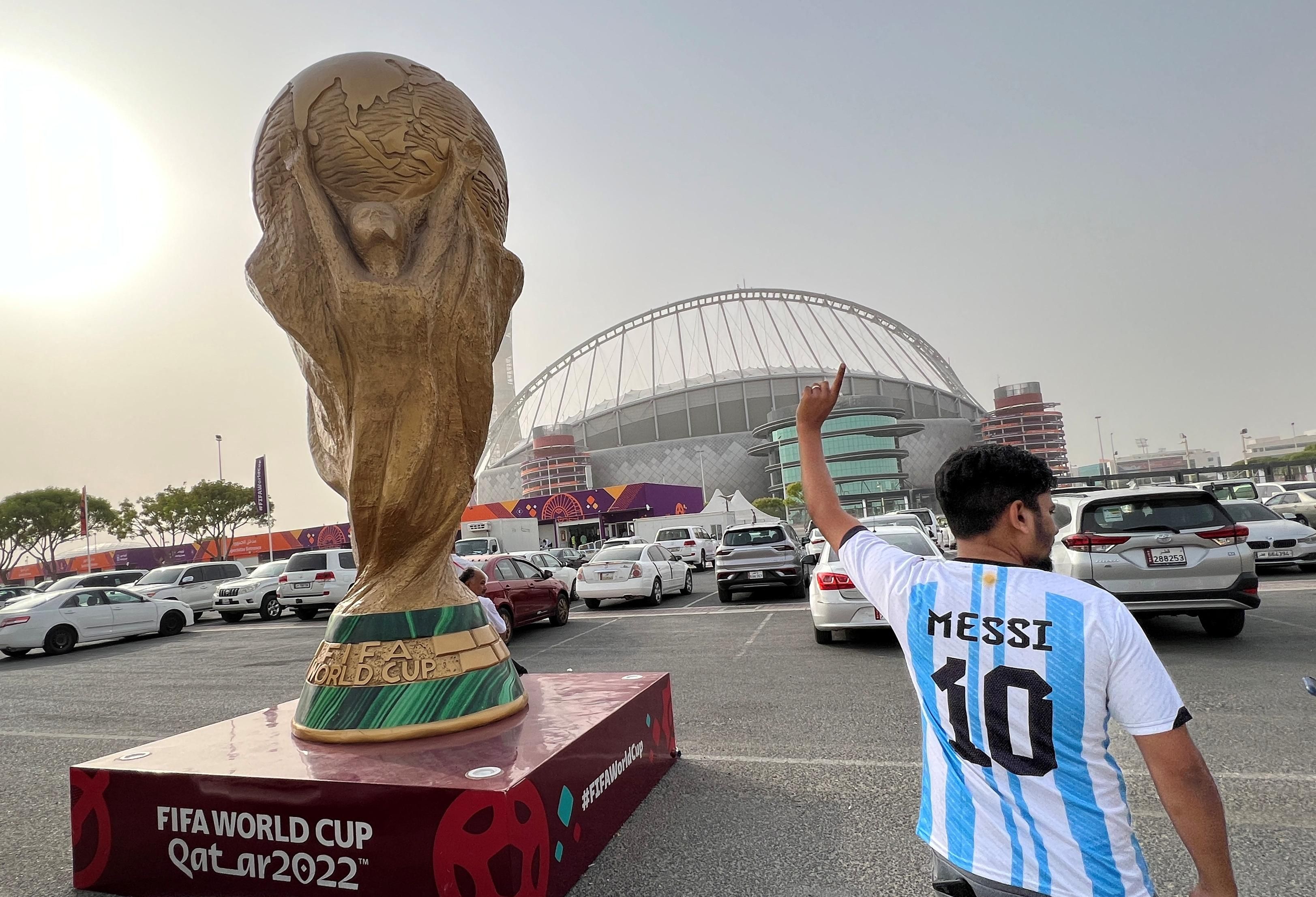Sunday is the day half the world has been eagerly awaiting for four years. The men's soccer World Cup — the most-watched event of the most popular sport on the planet — kicks off in, of all places, Qatar.
Hold up. A World Cup in a tiny country with zero soccer tradition that’s never qualified for the tournament? Yep. And that’s just one reason why, so far, this particular edition has grabbed more headlines over its scandals than the Beautiful Game.
First, Qatar has been called out for its dismal human rights record, especially regarding migrant workers. In February 2021, a bombshell report by The Guardian claimed that more than 6,500 guest laborers from South Asia had died while building the stadiums. (The Qataris, of course, deny it all.)
And then there's how Qatar treats LGBTQ people. Same-sex relationships are strictly banned, transgender people must undergo conversion therapy, and until a couple of months ago LGBTQ people were still being detained for no reason other than, well, being LGBTQ. Doha has tried to downplay it, but the tournament's official ambassador did it no favors when he told German TV that homosexuality is "damage in the mind."
Second, it all reeks of corruption. And that's on both sides: Qatar and FIFA, the governing body of world soccer, with a long and checkered history of being riddled with graft.
Ever since it awarded the 2022 tournament to Qatar — and the 2018 edition to Russia — over higher-merit bids almost 12 years ago, FIFA hasn't been able to shake the widely held suspicion that bribes were taken. The scandal blew wide open in 2015, when the FBI indicted some top officials for running FIFA like a mafia and forced longtime President Sepp Blatter to step down.
But even after FIFA admitted missing red flags like the sizzling temperature, it decided to keep Qatar as host. The consequence? For the first time, the World Cup was rescheduled for the winter months, requiring domestic soccer championships everywhere to take a two-month break in the middle of the season (allegedly) thanks to gas-rich Qatar's deep pockets.
FIFA got away with it because, quite simply, it has too much global sway. Indeed, the political power that comes with deciding who gets to host the most-followed sporting event on the planet cannot be understated.
Qatar, for its part, is using the World Cup to pitch itself as a peace-loving Middle Eastern country that wants to attract more tourism and foreign investment, sell more of its plentiful natural gas, and project more soft power in a notoriously volatile region.
There's been (some) backlash. In the run-up to the tournament, Qatar has become toxic for celebrities. While singers like Rod Stewart or Dua Lipa were praised for turning down hefty sums to headline the opening ceremony, Nicki Minaj got flak for recording the tournament’s theme song following the social media outcry over Qatar's anti-LGBT laws.
Meanwhile, in Europe activist fans have piled on by calling for a boycott. Whether that means not watching in person or not watching at all is unclear, but so far the strongest national team reaction has come from Denmark, whose players will wear "toned-down" uniforms in Qatar.
Yet, despite all the controversy, the vast majority of soccer nuts around the globe will still tune in. Why?
For one thing, it's not the first time a World Cup host has had a dodgy human rights record. After all, Argentina won its first trophy at home in 1978 while the country was run by a fearsome military junta. For another, the political stuff usually stops when the ball starts rolling.
Once the tournament is underway, most fans’ attention will switch quickly from human rights to the human magic expected from the feet of megastars like Leo Messi, Kylian Mbappé, or Neymar. (We'd mention Cristiano Ronaldo too, but he's in a bit of a slump these days.)
So, dear reader, let's kick the question over to you: Will the story of Qatar 2022 be scandal or soccer? And while we're at it, who do you think will win? The smart money seems to be on Argentina and Brazil, but there are plenty of underdogs — hello, Senegal — with a shot at going all the way.
Let us know your thoughts on either here.This was featured in Signal, the daily politics newsletter of GZERO Media. For smart coverage of global affairs that normal people can understand, subscribe here.
